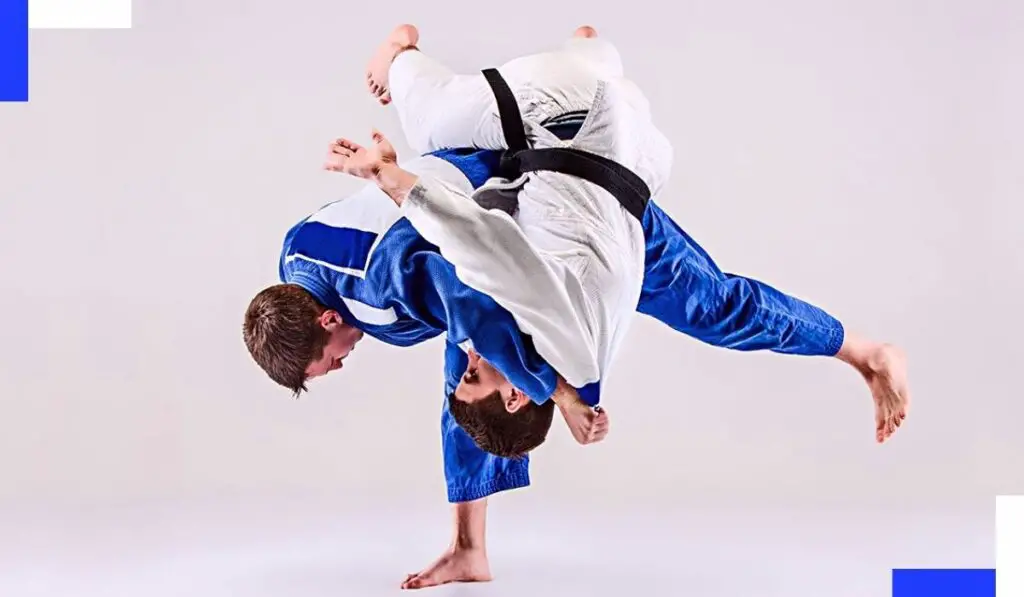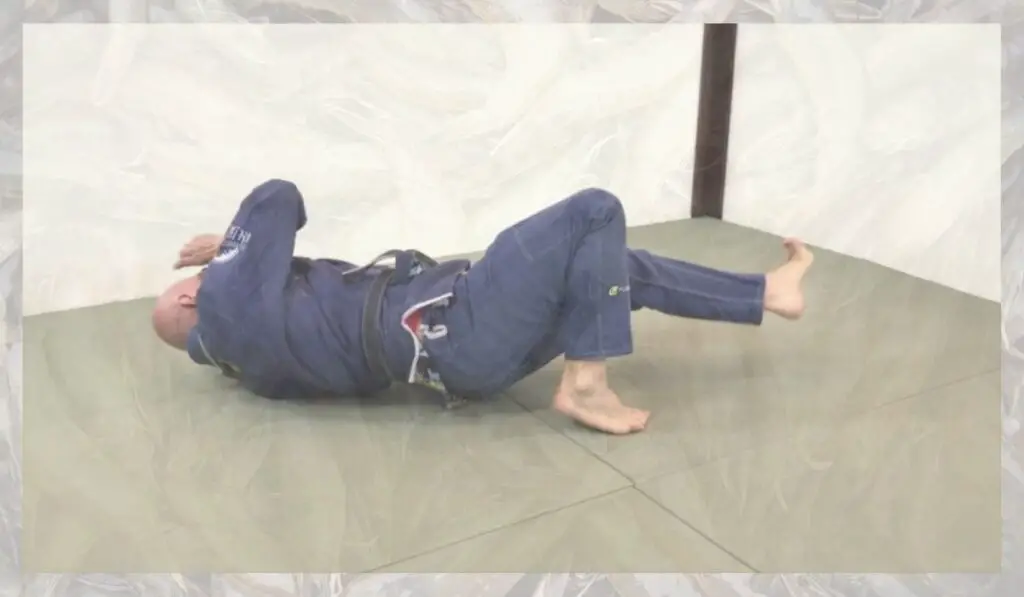Is BJJ in the Olympics? There were many hints of adopting BJJ into the family of Olympic sports in the past. But unfortunately, it hasn’t followed in the footsteps of boxing, Taekwondo, wrestling, and Judo yet.
Brazilian Jiu-jitsu is very popular all around the globe. There are so many top-notch gi and no-gi tournaments and competitions. Yet, the sport must satisfy specific parameters to get the Olympic Committee’s approval.
Unfortunately, we haven’t seen BJJ in Brazil in 2016 or Tokyo in 2020. This article will reveal which challenges prevent Jiu-Jitsu from becoming an Olympic sport.
Is BJJ an Olympic Sport?
The answer is no. Karate debuted in Tokyo 2020 despite so many different federations and governing bodies. Still, BJJ hasn’t gotten its chance yet.
One of the most popular grappling disciplines has to deal with many problems before the Olympic committee officially says yes. For example, UAEJJF tried to apply for Paris 2024. Still, the attempt didn’t end successfully because of its close ties with the UAE government.
In addition, approval is impossible when an independent non-profit international organization doesn’t represent the organization.
Why Brazilian Jiu-Jitsu Is Not in The Olympics?
Three big problems stop BJJ from making its Olympic Games debut. We’ll guide you through each one of them step-by-step.
1# BJJ Doesn’t Have an Official Governing Body
The IOC (International Olympic Committee) is not friendly toward martial arts without an official governing body.
Here is the problem – there are so many various BJJ organizations all around the globe. Still, none of them is the official governing body of Brazilian jiu-jitsu. Some of the most famous federations with the most significant number of competitions include:
- International Brazilian Jiu-Jitsu Federation (IBJJF, the most noteworthy organization, created by Carlos Gracie Jr.); Ju-Jitsu International Federation (JJIF);
- Sport Jiu-Jitsu International Federation (SJJIF);
- UAE Jiu-Jitsu Federation (UAEJJF);
- Abu Dhabi Combat Club (ADCC).
Sadly, the IOC will not accept one of the most demanding grappling sports unless an eligible international federation applies to represent it. So, it seems we can only dream of BJJ Olympic medalists in the years to come.
2# No Standard Rules
The organization outlines the rules of every single BJJ competition. It is also subject to change or variation.
Rules are constantly updating as the sport gains more popularity. Yet, the demand of the Olympic committee is “an agreed-upon set of rules to govern the competition.” Unfortunately, BJJ cannot fulfill the previous syntax.
Also, BJJ would have to allow the IOC to change the competition rules for the Olympic Games purposes. It happened in Judo today; there are no leg locks, and some other techniques are removed, too.
A non-trained spectator would have difficulty understanding the rules due to so many differences between federations. For example, the mount brings you points in ADCC, but side control doesn’t. Likewise, heel hooks are illegal in some federations.
Another problem is stalling. In gi bouts, the fighter who leads on the scorecards will probably delay the fight and control the opponent without a submission attempt en route to a decision win.
Transitions, sweeps, and submission switches are way faster in no-gi BJJ combat so it might be better for the Olympics. Boring fights are not entertaining to watch; nobody needs boos.
3# Drug Testing Issues
Well, there hasn’t been any drug testing in the early stages of the sport. But IBJJF inked a partnership agreement with USADA (U.S. Anti-Doping Agency; this organization tests UFC fighters, too) a few years ago, so there are fewer juiced fighters.
Before this, cheating was way more manageable as there were no tests and penalties for rule-breakers.
IJJF adopted the anti-doping violation code back in 2004. The IBJJF has cooperated with WADA (World Anti-Doping Agency) and USADA since 2013. Is this a step on the right path?
Yes, but if all other BJJ organizations follow the IBJJF’s footsteps, it will significantly improve the chances of seeing BJJ in the Olympic tournament.
Will BJJ Be in The Olympics in 2024?
Unfortunately, there is a tiny probability. The UAEJJF applied to represent BJJ in 2024 in Paris. Still, the IOC rejected the application because this federation has close ties to the UAE (United Arab Emirates) government.
The problem with the lack of an international governing body might be resolved if UWW works with the IOC. It could make the sport suitable for the Olympic audience.
Also, some jiu-jitsu federations work very hard to implement anti-doping rules in their competition policies, but random testing costs a lot.
The third problem is the BJJ community. Yes, some would like to see it in the Olympics. Still, the IOC might order significant rule changes, which might change the heart of Brazilian jiu-jitsu. The modified rule set might mean that only the best could get a decent income from BJJ.
Related: Jiu-Jitsu is a challenging martial art that demands physical endurance, strategic thinking, and mastery of complex techniques. Click here to read more!
What Martial Arts Are In The Olympics?
Boxing and wrestling are traditional disciplines from ancient Greece. The two have existed since the beginning of the modern Olympic Games. Although some consider fencing a martial art, it also appeared in Athens in 1896 (females competed for the first time in 1924).
Judo first appeared in 1964, then returned, never to leave again, in Munich in 1972. But there were so many rule changes.
Taekwondo appeared in 1988 in Seoul as a demonstration sport, but not in Barcelona in 1992 and Atlanta in 1996. Olympic Taekwondo competitions officially kicked off in Sydney in 2000.
Karate was added to the Tokyo 2020 program with two disciplines – Kata and Kumite (fights).
Related: Learn which martial arts allow you to earn a black belt in under three years. Click here to read more!
Final Thoughts
No-gi BJJ is way more dynamic than gi jiu-jitsu. It could be a way better candidate for the Olympics. Unfortunately, it seems there won’t be BJJ in Paris in 2024. We’ll list the reasons that stop one of the most popular grappling martial arts from becoming a part of the Olympic family:
- Governing body issues – UAEJJF has close ties with the UAE government, which is against the IOC rules;
- There are differences between organizations, which makes the sport complex to understand. A standard rule set could increase the chances for BJJ’s debut in the Olympics.
- All BJJ federations should build closer ties with the WADA/USADA; it would make anti-doping policy violations more effective and stop cheaters.
- One part of the BJJ community is against putting sport into the Olympics as it might kill the BJJ’s spirit once and for all.
Let’s hope IOC will give BJJ a shot in the future. Would you like to see the Brazilian jiu-jitsu at the Olympic Games? Please let us know in the comments below!



